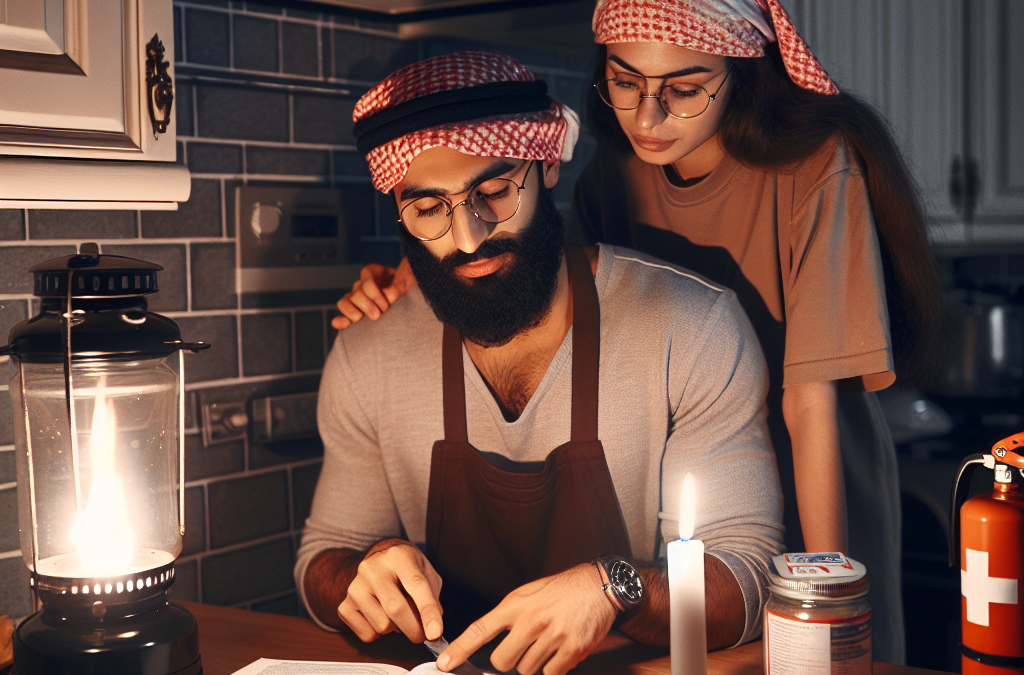Understanding the Risks of Cooking During Outages
The Dangers of Carbon Monoxide
So, let’s be real, when the lights go out, it can feel like a scene out of a survival movie. I’ve been there, rummaging through the pantry and itching to get something cooked. But here’s the catch—using generators or charcoal indoors is just reckless. Carbon monoxide is a real silent killer, and you don’t want to be the star of a horror story.
It’s essential to stay informed about this risk. Even if it feels like a safe haven, cooking indoors with any sort of fuel that emits fumes could lead to serious health issues, or worse. I learned this the hard way—after a minor incident during a storm, I’ve since become a stickler about outdoor cooking.
Keep in mind that if you can’t be outside, it’s worth considering no cooking at all. Sometimes a simple meal that doesn’t require heat is your best bet. Trust me, your lungs will thank you!
Planning Your Food Supplies
Keep a Well-Stocked Pantry
One of the biggest mistakes I’ve made during outages is not having my food game plan sorted. I swear by keeping a collection of non-perishable foods on hand. Canned goods, dried fruits, and nut butters have saved me more than once!
Make sure to check the expiration dates regularly. You don’t want to find yourself hoarding a can of something that’s been sitting around too long. I’ve got a checklist and every month I check what needs to be rotated out—think of it as a mini inventory.
Also, don’t underestimate the power of snacks! It’s easy to overlook, but when the power’s out, having something quick to grab can keep the morale up. Whether it’s granola bars or trail mix, stocking up can make all the difference.
Thank you for reading this post, don't forget to subscribe NOW for FREE!
Utilizing Alternative Cooking Methods
Grilling and Outdoor Cooking
Ah, the grill! It’s not just for backyard barbecues. For me, it’s my go-to during power outages. Grilling outdoors can be a lifesaver. It’s easy, quick, and gives everything a magical smoky flavor.
However, it’s not just about tossing some burgers on there. You can whip up veggies, seafood, and even fruits! Yes, that’s right—grilled peaches anyone? Just remember, always use your grill outside and never in a garage or enclosed space.
And don’t forget to prep! The last thing you want is to be fumbling around in the dark trying to get everything ready. Cook and cut things before the outage hits if you can. It’s just a smoother process when you have everything set up.
Keeping Food Safe
Understanding Food Temperatures
Now, let’s chat about food safety. It’s all good and fun until you get sick from spoiling food. I’ll keep it simple: your refrigerator will keep food safe for about four hours if it remains closed. Keep an eye on that clock!
When it comes to leftovers, after a power outage, if in doubt, throw it out. I’d rather toss out a bit of food than deal with a stomach bug that could last for days. Better safe than sorry, right?
Another handy tip? Use ice packs and coolers for any perishable items if you’re braving the outage for a while. It’s amazing how a little preparation can extend the life of your food supplies.
Engaging the Community
Sharing Resources and Support
Sometimes, the best thing you can do during a power outage is to reach out to neighbors. I’ve found that communities come together, and if you have extra supplies or skills, share them! You’ll never know who might need a helping hand.
Organizing potlucks can also be a fun way to utilize food before it spoils. I’ve attended gatherings where everyone contributed what they could, and together we whipped up a feast. It’s not only practical but creates a sense of camaraderie.
Don’t forget to stay connected! Social media or community apps can help coordinate food sharing or resources. Sometimes, someone nearby might have a generator or a camp stove they are willing to share. Just put the call out there!
Frequently Asked Questions
1. What should I do if the power goes out?
First, stay calm! Keep your refrigerator and freezer closed. Use your alternative cooking methods if you can, and make a plan for your food supply.
2. How long can food last without power?
Typically, food in your fridge will stay safe for about four hours if you keep the door closed. Your freezer can maintain its temperature for about 48 hours if full.
3. Is it safe to cook indoors during a power outage?
No! Cooking indoors using grills or generators can lead to carbon monoxide poisoning. Always cook outside to ensure safety.
4. What types of food should I keep on hand for emergencies?
Focus on non-perishables like canned goods, dried fruits, snacks, and any easy-to-cook items. Make sure to rotate your supplies regularly!
5. How can I engage my neighbors during a power outage?
Reach out to those around you! Organize a community gathering to share resources or food. It’s a great way to bond and ensure everyone is safe and fed!






